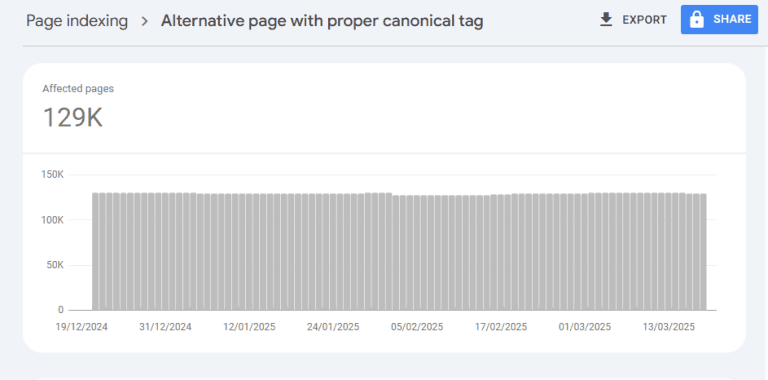International SEO Services
Expand Your Reach Globally with an International SEO Consultant - Expanding into international markets comes with challenges that most businesses overlook. Poor localisation, incorrect URL structures, and misconfigured hreflang tags can wreck visibility. I specialise in fixing these problems before they cost you traffic and conversions.
With a structured, practical approach, I help businesses scale globally by ensuring search engines understand which pages to rank in which countries. No generic strategies, just tailored solutions based on your markets, platform, and business goals.
Common International SEO Mistakes
Many businesses expand globally without a clear SEO strategy, leading to duplicate content, incorrect indexing, and wasted opportunities. If search engines don’t understand your international pages, customers won’t find them.
I ensure your website is structured correctly, pages are indexed in the right regions, and local users see the most relevant content.
Expanding Your Reach Without Losing Search Visibility
International SEO is about more than just translating content. Search behaviour varies across markets, and what works in one region won’t necessarily work in another. I ensure that your content is optimised for local intent, indexed correctly, and accessible to the right audience.
Whether you’re launching in new regions or fixing past mistakes, I provide strategies that ensure your global expansion supports business growth, not just rankings.
Send Me a Message
Let’s start the conversation! Whether you’re ready to discuss a project or just have questions, feel free to reach out using the contact form.
Other Ways to Get In Touch
Here’s how to reach me:
- Email: [email protected]
- Phone: +44 0161 883 7720
- LinkedIn: Connect with me
My hourly rate is £70 (GBP) per hour, with flexible arrangements for longer-term commitments.
Expanding Internationally Without Losing Search Visibility
Expanding into new markets is an opportunity for growth, but without a structured SEO strategy, it can quickly turn into a mess. Search intent, competition, and ranking factors vary by region, and what works in one country won’t necessarily translate to success elsewhere. Businesses that fail to plan for international SEO risk diluted rankings, duplicate content issues, and missed opportunities.
Understanding Search Intent Across Different Markets
Not all searches mean the same thing in every country. A keyword that drives conversions in the UK may be completely irrelevant in Germany, Japan, or the US. International SEO requires a deep understanding of local search behaviour, cultural nuances, and how different audiences engage with content. A direct translation won’t cut it—content must be adapted to align with how users in each market actually search.
Technical SEO Challenges in Global Expansion
Expanding internationally brings a range of technical SEO challenges that businesses need to navigate. Issues like improper hreflang implementation, conflicting geo-targeting signals, and poorly structured URLs can prevent search engines from correctly indexing the right pages in the right countries. Without a solid technical foundation, even the best content won’t rank where it should.
Choosing the Right URL Structure for International SEO
There’s no one-size-fits-all approach to URL structures for global sites. Whether to use ccTLDs, subdirectories, or subdomains depends on multiple factors, including business goals, available resources, and how much control you need over each region. A poorly chosen structure can split authority, waste crawl budget, and create unnecessary duplication across multiple versions of the site.
Balancing Localisation With Global Brand Consistency
Localising content is essential for engagement and conversions, but it has to be done without sacrificing brand identity. Businesses need a balance between making their website feel native to local users while maintaining consistency in messaging, design, and structure. A disjointed user experience across different regions can weaken credibility and reduce trust.
Investing in Long-Term International SEO Strategy
Global expansion isn’t just about launching translated versions of a website and hoping for the best. It requires continuous optimisation, competitor analysis, and tracking search performance across multiple regions. Markets evolve, search trends shift, and SEO strategies need to adapt. Businesses that invest in international SEO with a long-term mindset position themselves to capture new markets effectively.
Book a Consultation
International SEO Strategy
Tailored SEO strategies for expanding into new markets while maintaining search visibility.
Hreflang & Geo-Targeting
Ensuring the right content appears in the right regions to avoid duplicate content issues.
Market-Specific SEO Optimisation
Custom search strategies to align with local language, search behaviour, and competition.
International SEO Insights
Thoughts, ideas, and a few lessons from working on international SEO day to day. Nothing polished or overdone, just the stuff I think is worth sharing.
Freelance International SEO Consultant
Struggling with a Global Setup that’s Messy or Underperforming?
A recent client came to me with eight international websites across multiple platforms. Two of those sites were ecommerce, the rest were a mix of brochure-style product pages and stockist listings. BigCommerce, Typo3, WordPress, and Sitecore were all in the mix. Different structures, different teams, different levels of SEO maturity, and no clear consistency between them.
They weren’t looking to start again. They just wanted a way to bring everything into line, fix the foundations, and start growing their international organic footprint properly. The sites had grown organically over time, but that had led to duplication, mixed signals, and a lack of visibility in key markets.
What they needed was structure. A way to unify technical SEO across platforms, improve language and regional targeting, and introduce a repeatable approach that worked across all eight sites without holding back performance.
That’s the kind of work I do. Practical, platform-aware, and focused on international SEO strategies that scale. If your global setup feels fragmented or you’re not sure how well it’s working, I can help you clean it up and grow it the right way.
Solving Hreflang at Scale
Another client had five international websites, all running on the same platform. On the surface, it sounded simple enough. But each site had different product URL keys, different category structures, and completely disconnected internal naming conventions. To make things worse, their developers had told them hreflang mapping wasn’t possible across the setup.
I’ve heard that a few times. But in most cases, it’s just a limitation in how the problem’s been framed. Once I took a proper look, I showed them how to create a structured hreflang map that matched related pages across markets without needing to rebuild the URLs. Even the developers were surprised at how easily it could be implemented once the logic was in place.
The result was a cleaner signal to search engines, fewer indexing issues, and a proper international setup that didn’t rely on guesswork. When hreflang is handled properly, it becomes one less thing holding back performance. And it’s rarely as complicated as it’s made out to be.




